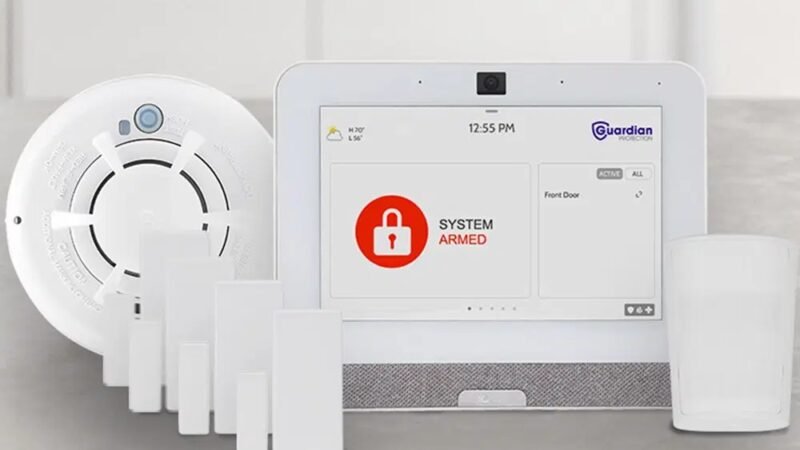Maintaining Your Financial Wellness

Why financial wellness is more about balance than numbers
When people think of financial wellness, they often picture-perfect budgets, hefty savings accounts, or spreadsheets that track every penny. But true financial wellness goes beyond numbers. It’s about balance — managing money in a way that supports your goals, reduces stress, and creates stability over time. It means having the confidence that you can handle what life throws your way without losing sleep over every bill or unexpected expense.
Sometimes, finding that balance involves using financial tools wisely. For instance, if you’re managing a temporary cash crunch, options like a vehicle-secured loan in Chesapeake might provide short-term relief. But long-term wellness comes from building a system that prevents those emergencies from defining your financial life. It’s about designing habits that help you meet obligations today while preparing for tomorrow.
Budgeting as your foundation
A good budget isn’t about restriction — it’s about awareness. It’s a tool that helps you see where your money goes and ensures your spending aligns with your priorities. Many people avoid budgeting because they associate it with sacrifice. In reality, it’s about freedom — the freedom to make informed choices without guilt or guesswork.
Start by tracking expenses for a month. Separate needs from wants, and look for patterns. Are you spending more on convenience than you realize? Are subscriptions or small indulgences quietly eating into your goals? Once you have clarity, create categories that reflect your real life — not a fantasy version. Make room for fun, because sustainability depends on balance, not deprivation.
There are plenty of free tools to make budgeting easier. The Consumer Financial Protection Bureau’s budgeting worksheet can help you structure your income and expenses in a way that feels manageable and realistic.
Managing debt with strategy, not stress
Debt isn’t inherently bad. Used responsibly, it can open doors — to education, transportation, housing, and even business opportunities. The problem arises when payments outpace your ability to keep up. Managing debt well means understanding interest, due dates, and the total cost of borrowing.
If you have multiple debts, start by listing them from highest to lowest interest rate. Focus on paying off the expensive ones first while keeping minimum payments on the rest — a method often called the “avalanche” approach. If motivation is more your challenge than math, use the “snowball” method instead: tackle the smallest debt first to build momentum.
It’s also important to stay aware of credit health. Your credit score influences everything from loan approvals to insurance premiums. Paying on time, keeping balances low, and avoiding unnecessary credit inquiries are simple ways to protect it.
Building emergency savings — your stress buffer
An emergency fund is your safety net. It doesn’t need to start large; even a few hundred dollars can make a big difference when surprise expenses hit. Aim to eventually save three to six months’ worth of living costs, but focus first on small, achievable goals. Set up automatic transfers to a separate savings account so you don’t have to rely on willpower.
Emergency savings do more than cover bills — they provide peace of mind. When you know you have a cushion, you make decisions based on reason, not fear. That confidence ripples into every other part of your financial life.
If you need ideas for where to stash your emergency fund, the FDIC’s savings account comparison resources can help you explore safe, interest-bearing options that fit your needs.
Insurance: your invisible protector
Financial wellness isn’t just about growing wealth — it’s also about protecting it. Insurance may not be exciting, but it’s one of the most effective tools for preventing financial setbacks. Health, auto, renters, or homeowners insurance can shield you from losses that could otherwise derail your budget or savings goals.
Take time once a year to review your coverage. Are your deductibles manageable? Have life changes — like a new car, job, or home — altered your needs? Insurance is about preparing for the unpredictable so you can move forward with confidence.
Planning for long-term goals
True financial wellness extends beyond the present. Planning for the future means setting intentions, not just expectations. Retirement might feel far away, but time is your most valuable asset when it comes to saving. The earlier you start, the more you benefit from compound growth — the process where interest earns interest over time.
If your employer offers a retirement plan, contribute enough to get the full company match. It’s essentially free money. If you’re self-employed, explore options like a traditional or Roth IRA. The key is consistency — small, regular contributions add up faster than occasional large ones.
Beyond retirement, consider future goals such as buying a home, starting a business, or funding education. Create separate savings buckets for each so you can track progress clearly. Seeing growth over time reinforces good habits and keeps motivation strong.
Emotional balance: the overlooked pillar of financial health
Money affects emotions, and emotions affect money. Financial wellness includes managing the stress and anxiety that often come with financial decision-making. When you feel overwhelmed, you’re more likely to make impulsive choices — spending too much, avoiding bills, or overborrowing.
Mindful financial habits can help. Before making a purchase or taking on new debt, pause and ask, “Is this helping or hurting my long-term stability?” Building awareness around spending triggers, like stress or boredom, makes it easier to stay in control.
Practicing gratitude can also improve your relationship with money. When you focus on what you already have, you shift from scarcity thinking to stability thinking. This change in mindset supports smarter, calmer decision-making.
Maintaining the momentum
Financial wellness isn’t a destination — it’s a practice. Like physical fitness, it requires ongoing effort and adjustment. You’ll have months when things go smoothly and others when you need to recalibrate. What matters most is staying engaged. Check in with your budget regularly, celebrate progress, and don’t be afraid to adapt when life changes.
Maintaining financial wellness isn’t about perfection; it’s about resilience. By managing your money with awareness, planning for the future, and protecting yourself from setbacks, you build a sense of stability that goes far beyond your bank account. Over time, that stability becomes freedom — the kind that allows you to make choices based on your values, not your worries.


